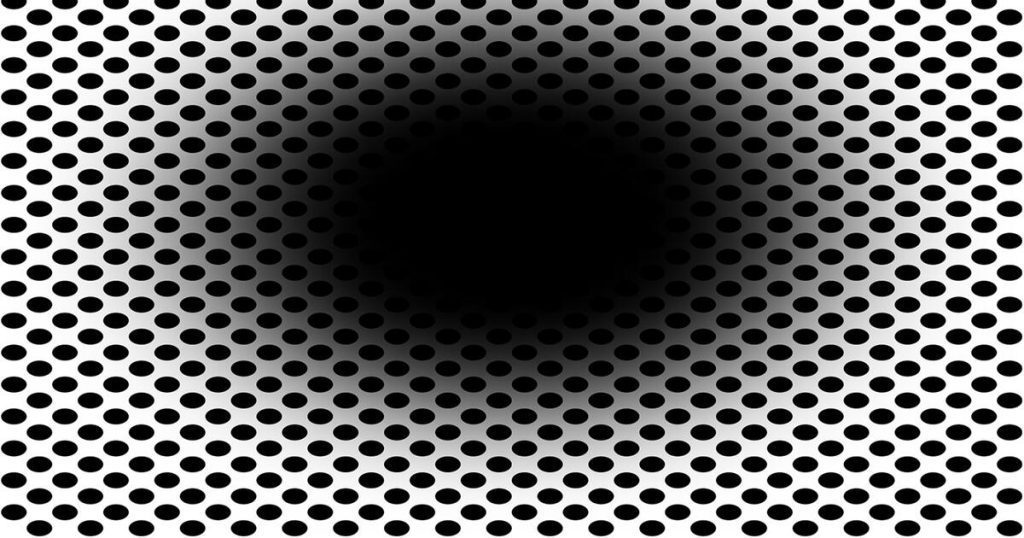Update: 06/10/2022 at 10:00 PM
- Is the big dark spot coming towards me or not?
- Don’t worry – this “black hole” is completely static.
- This new optical illusion only confuses our eyes and brain.
The “black hole” in this image (click on the image above for a larger view) is completely static. However, many viewers are presenting In a recent study The hole is widening and “provides an increased sensation of darkness, as if you were entering a room devoid of light,” according to researchers from the University of Oslo and Ritsumeikan University in Osaka.
People who feel that darkness is approaching them
For this purpose, an experiment was conducted – initially with colored holes – on 50 people. The researchers concluded that the illusion was stronger when the hole was black. 86 percent of the participants felt darkness was coming towards them. Tracking the participants’ eye movements revealed that their pupils unconsciously dilated when viewing the black hole.
“We were able to use the illusion of the new dilated aperture to show that the pupil responds to how we perceive light – even when this ‘light’ is inherently imaginary – not just to the amount of light energy actually entering the eye.” , explains psychologist Bruno Laing, one of the researchers involved.
Our minds prepare us to change the scene
But why is this? The study’s authors, Bruno Lange, Shoaib Nabil, and Akiyoshi Kitaoka, hypothesize that the simulated forward feint movement is likely related to how our minds prepare for a change of scenery. Researchers believe that the brain is trying to prepare our visual system to change light levels – and potentially dangerous conditions – by anticipating a change from light to dark.
“Just as brightness can be dazzling, sudden darkness can also become dangerous when you have to move in a dark environment,” the authors wrote. Although the illusion comes at the expense of honesty – the observer does not move and does not enter a darkroom, so reality is not depicted – these costs are “perhaps less serious than if there were no corrections”.
The brain tries to anticipate changes
Instead of processing the actual visual information of the eyes, the neural network tries to predict what information to expect in the future. Thus, the researchers explain an imaginary ‘expansion’ of the ‘central ‘hole’ region.
If this process did not occur in our brain, it would take a few milliseconds longer for the new visual information to reach higher processes in the brain. Our pupils will only dilate later and we will not be able to find our way very well in the dark.
The authors now want to test whether the animals fall in love with an optical illusion. They want to use this to better understand how the human visual system develops.
Sources used:
- sciencealert.com – A spooky optical illusion that makes it look like a black hole is coming to take you
- Frontiers in human neuroscience – the pupil adapts to deceptively dilated orifices

Optical illusion is currently causing quite a stir on the internet. Two rotating gradient circles appear to move across the screen. But appearances are deceiving.

“Total coffee aficionado. Travel buff. Music ninja. Bacon nerd. Beeraholic.”








More Stories
Coral Seeding: Artificial Insemination Makes Coral More Heat Tolerant
Fear, Anger, and Denial: How People Respond to Climate Change – Research
LKH Graz: Using radiation to combat heart arrhythmias